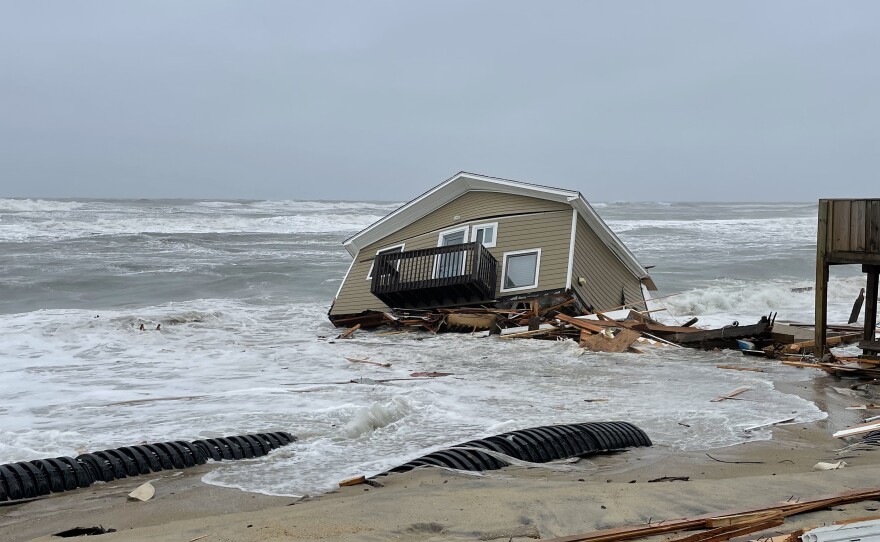Mortared with Lies
In a PhD seminar, Dr. Brian Gerrish led the class through understanding where various Reformation leaders stood on the meaning and consequences of sin. John Calvin, he said, believed human beings are so captured by sin that we sin “and we like it.”
Given the breadth of depth of telling lies in public these days, I may become a Calvinist (nah, not really, but go with me here…).
When I was a child, I was taught at home, school, and church that lying is wrong. If one builds a relationship on lies, a family on lies, a society on lies, one has built on “sinking sand.” Ones creation is a house of cards; someone will eventually blow it down or shake the foundations and the lie-mortared structures tumble into the sea.
I believe a goodly measure of the ubiquitous anxiety so many of us feel these days is because we feel the undertow of the waves of consequences due to so many public lies. We fear the results of those lies are going to be very bad; we just don’t know how bad.
Today, we seem to live and move and have our being in lies.
Despite dozens of official investigations to the contrary, 70 percent of Republican voters believe the 2020 presidential election was stolen.
I was stunned to learn that a mere 9 percent of plastic is recycled, and plastic can be recycled only once or twice before it loses integrity. The recycling logo was developed by plastic manufacturing companies; and they encourage us to recycle. But most of what they produce, including single-use plastics, will outlive us in landfills, oceans, and rivers.
The strategy of individuals paying attention to our carbon footprints was developed by a fossil fuel company in an effort to avoid systemic changes that are possible only at the levels of government and corporations.
Fossil-fuel extracting energy companies have known about climate change for decades but have paid to withhold or distort their findings. The Department of Defense has been including climate change in their scenario projections. When Oklahoma Senator James Inhofe, DOD champion, mocks climate change and throws a snowball on the floor of the chamber, is his action a matter of not knowing or something else?
Alex Jones has been ordered to pay nearly $50 million to a family who sued him because, for whatever nefarious reasons, he claimed a mass school shooting never happened, that it was all staged actors organized by anti-gun rights activists. Jones is but one of dozens and dozens of opinion pundits who daily spin out and repeat lies repeatedly—and make a great deal of money doing so.
And QAnon? Where does one begin?
I’ve known about the Lost Cause for some years—the interpretation of the Civil War that claims the war was about states right, a right to a way of life based on white supremacy, and that the South lost the war because God wanted to chasten them but that the Southern way would rise again. I did not know, however, that the history book most likely used in my high school American history classroom perpetuated these lies.
 Do we, as a society, still believe lying is wrong, at least most of the time? Or has another belief overtaken us? When I first learned about the Unification Church about 50 years ago, it was said they practiced “heavenly deception.” This was a god-justified version of the principle “the end justifies the means.” Church members lied to potential converts as they recruited people on the streets to attend a life-changing weekend retreat. During that “retreat,” however, participants were subjected to brainwashing techniques in an effort to render them into church members obedient to the teachings of the founder.
Do we, as a society, still believe lying is wrong, at least most of the time? Or has another belief overtaken us? When I first learned about the Unification Church about 50 years ago, it was said they practiced “heavenly deception.” This was a god-justified version of the principle “the end justifies the means.” Church members lied to potential converts as they recruited people on the streets to attend a life-changing weekend retreat. During that “retreat,” however, participants were subjected to brainwashing techniques in an effort to render them into church members obedient to the teachings of the founder.
How many persons, associations, and media outlets today have buy into and practice heavenly deception?
Apparently, we lie to promote and protect our interests, and we like it.
But when will there be a reckoning? A house built on sand, mortared by lies, is still vulnerable to earthquakes and rising waves, yes?
Dr. Gary Peluso-Verdend is president emeritus at Phillips Theological Seminary and is the executive director of the seminary’s Center for Religion in Public Life. The opinions expressed in this blog are those of the author. Learn more about the Center’s work here and about Gary here.


Comments are closed.